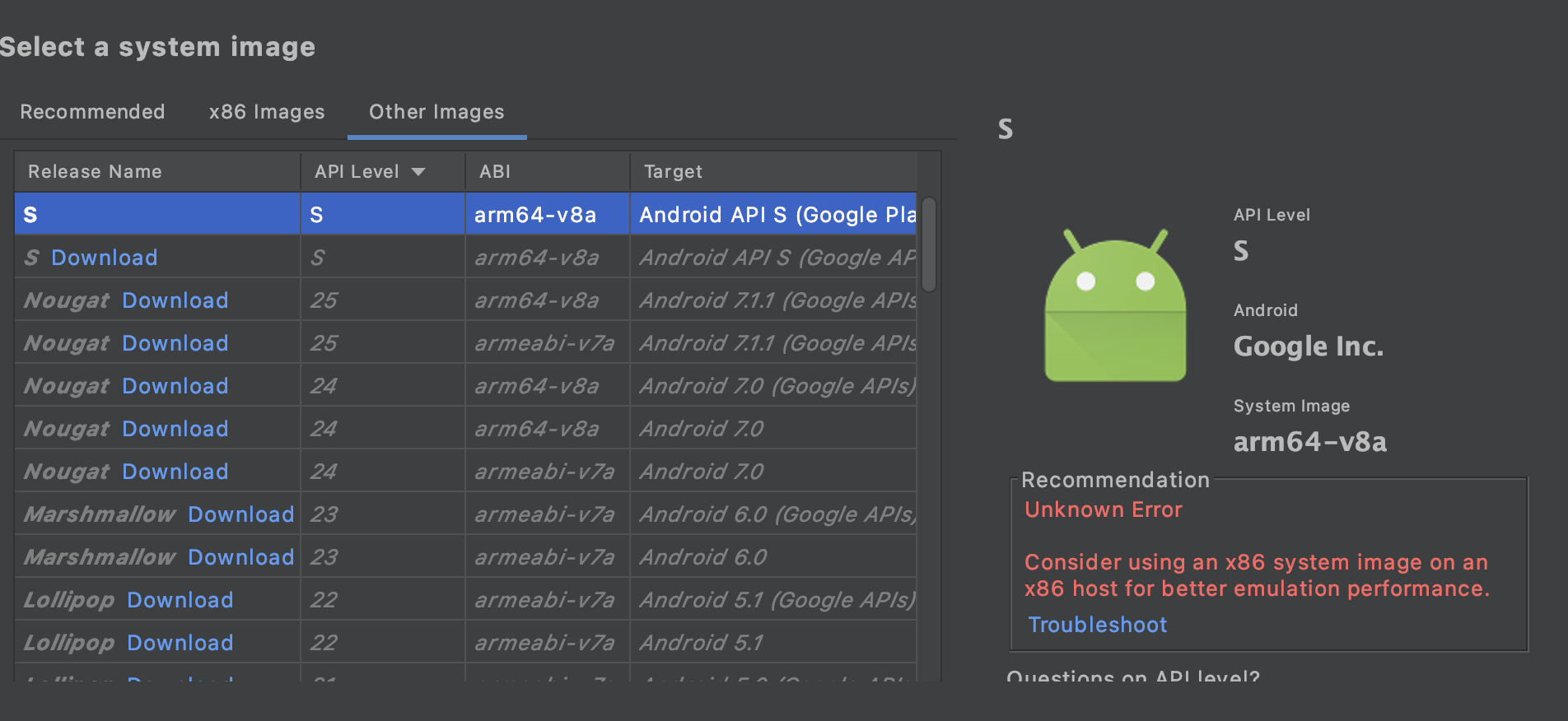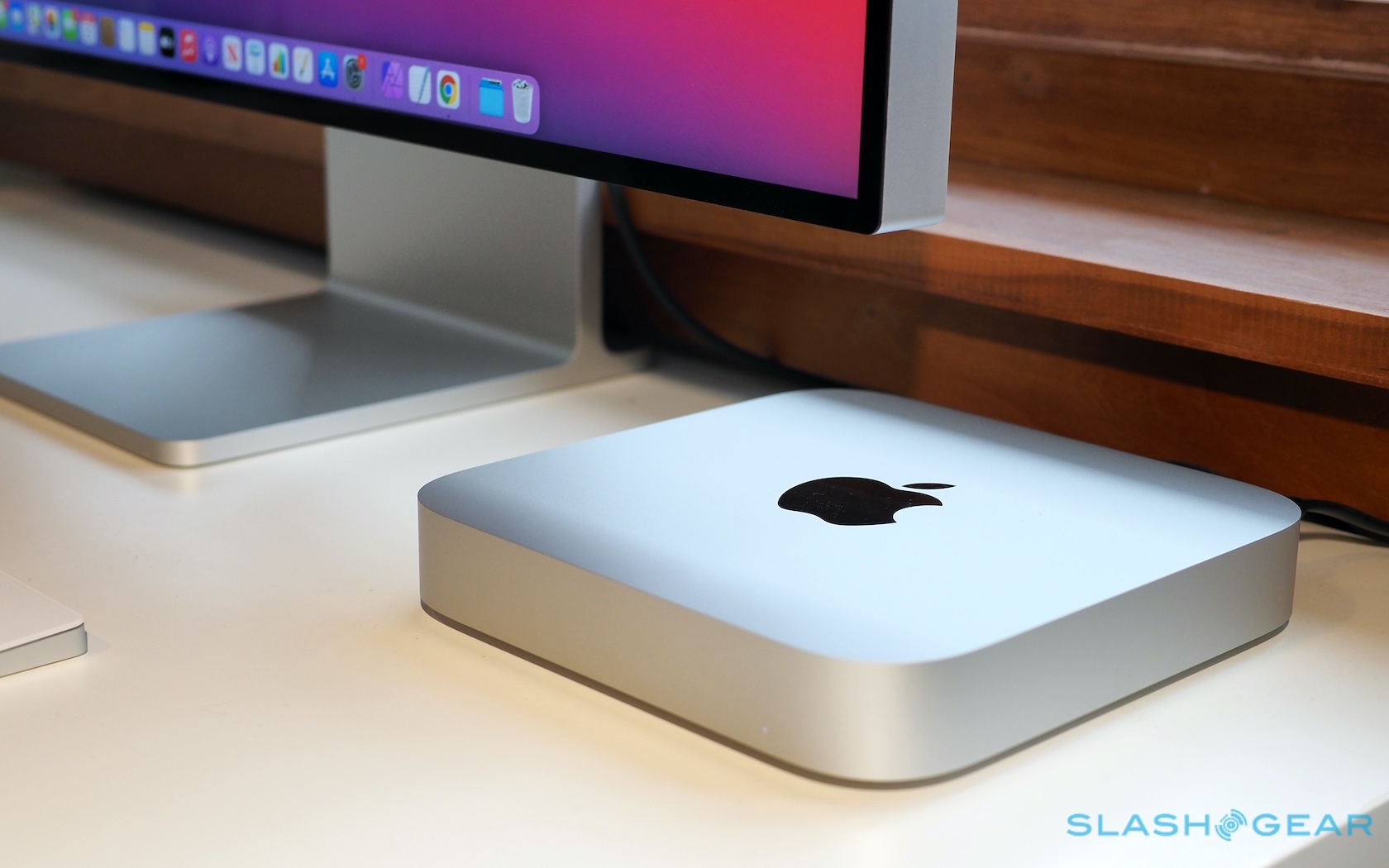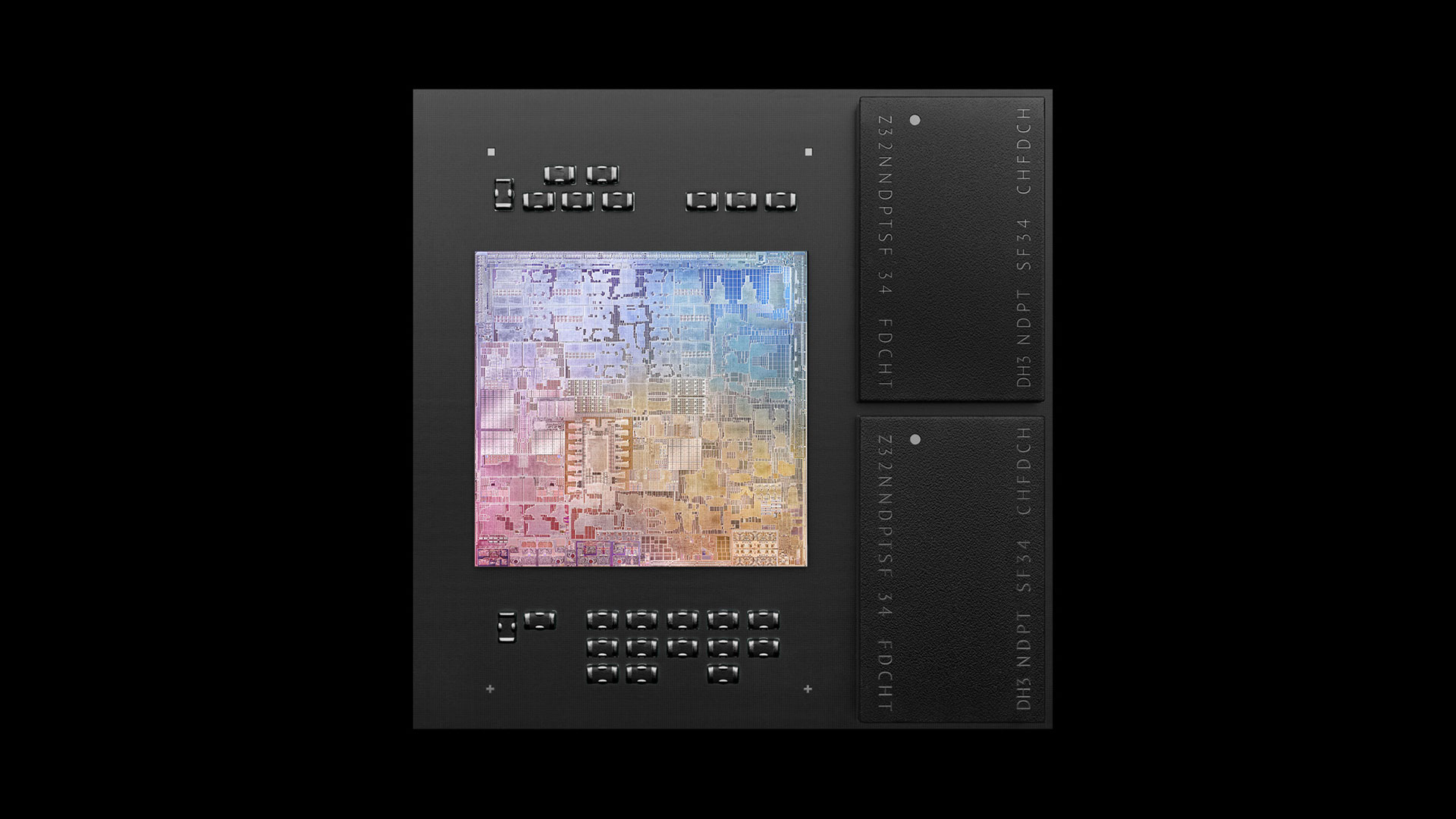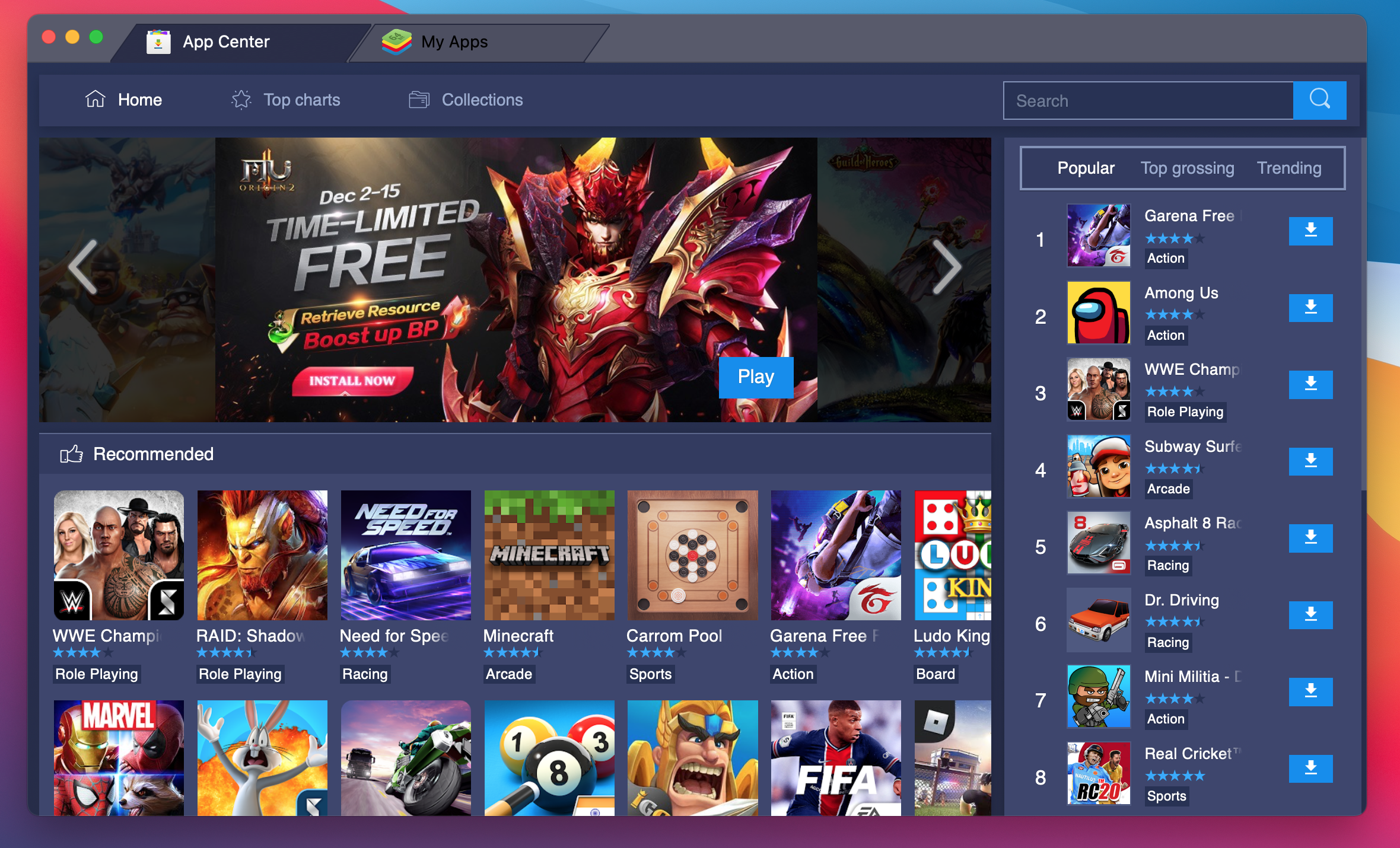MacBook Pro 2.3GHz 8‑core Intel Core i9 VS. 3 minutes and 1 second VS. 4 minutes and 46 secinds. CPU Temperatures: 88 to 92C (+hot air blowing out 😅) VS. M1 chips are cool (in a temperature sense), but currently slow. I'll update when a Apple Silicon optimized Android Studio comes out. Jun 01, 2021 I'm having trouble getting my emulator to work on my m1 mac. Currently, I am waiting on my physical android phone to arrive so I have to use an emulator for the moment. I have looked at the official.
- Mac Mini M1 Android Emulator Free
- Mac Mini M1 Android Emulator Download
- Any Emulators That Work With M1 Mac
- Android Studio M1
- Mac Mini M1 16gb
- Android Studio Emulator Mac M1
- Mac Mini M1 Android Emulator
For years, if Apple users wanted to run their favorite iOS apps on their computer, they’d have to do so via third-party applications, emulators, or other non-official methods. Now, if you own an Apple Silicon Mac (the newer ones with an M1 processor) and have the Big Sur iOS, you’ll have able to run iPhone and iPad apps on your Mac computer.
See also: Best Apple Macbooks
What’s the Benefit of Using iOS Apps on My Mac?
Applications on the iPhone and iPad have come a long way. Now, you can have the full functionality of word processors, video editors, and other applications in the palm of your hand. Especially if you work on your iPad frequently, you may want to transfer data or workflows from your tablet to your computer. With this new Big Sur OS update, you can do just that.
Macs powered by Apple silicon, such as the M1 MacBook Pro, can run both iOS apps and Mac apps, but they can also run x86-64 software that's been built to work on Intel architecture, thanks to. Support for downloading the M1-based emulator was added to SDK Manager, so it's not necessary to go to the Github releases page to download a standalone.app anymore. In AVD Manager go to the Other Images tab as by default it doesn't show the ARM64 images. Android Emulator M1 Preview.
Can My Mac Run iOS Apps?
Mac Mini M1 Android Emulator Free

As mentioned, you can only run iOS apps on your Mac if your computer has an Apple Silicon chip. To check if your device is capable, follow these steps below:
- Click on the Apple logo in the top left corner of your screen.
- Click on About this Mac.
- If, under the Chip section, it says Apple M1, then you’re capable of running iOS apps on your computer.
How to Run iOS Apps on Mac
Downloading iOS apps on your Mac computer is extremely simple. If you know how the App Store works on your Mac, you’ll have no problem at all!
- Open the App Store on your Mac.
- Click on the search field in the App Store, and type in the app you want to download. Keep note that not all iOS apps are available on the Mac Apple Store.
- In the search results, select the iPhone & iPad Apps tab.
- Click the Get button next to the app search result.
- Download it, and you’ll be able to run iOS apps on a Mac!
What is an Emulator and Should I Use One?
With the new M1 MacBooks and its silicon chips, emulators have become rather obsolete and you don’t see them mentioned often like 10 years ago in the early 2010s. In short, an emulator is a program that ’emulates’ another kind of device or service. For example, in the early days of the Mac, you would have to download an emulator in order to run Windows OS on your Mac. Nowadays, there are more comprehensive services (one even built into the Mac itself) that allow you to do this more seamlessly.


Back in the day, it was extremely common to download emulators from shady third-party websites in order to run iOS apps, Gameboy games, and Windows programs on a Mac. Not only would you have to find the emulator application online, but you’d have to find the individual apps or programs you want to run as well. This made things pretty complicated and many people infected their devices with viruses and general malware.
Mac Mini M1 Android Emulator Download
If you have an older Mac and desperately need to use an iOS app on your computer, yes, you should use an emulator. There are plenty of resources on the internet to help guide you through the process to ensure you don’t download a virus and ruin your computer. If the idea of downloading a program off an unverified third-party source makes you feel uncomfortable, check out which Macs you would need to run iOS apps without an emulator.
Any Emulators That Work With M1 Mac
Looking for recommendations? Here are just a few worth checking out:
- iPadian
- Smartface
- Appetize
What’s the Best Mac for iOS Apps?
All Macs manufactured in 2020 and beyond will have an Apple silicon chip (also known as Apple M1). If you want to run iOS apps without using an emulator, we would recommend purchasing one of the models below.
- iMac (24 inch, M1, 2021)
- MacBook Pro (13 inch, M1, 2020)
- MacBook Air (M1, 2020)
- Mac mini (M1, 2020)
Source: androidauthority.com
I just got a new Mac Mini with M1 CPUs. The first thing I did was install Chrome. The next thing I did was install Flutter.
So I went to flutter.dev and downloaded the latest build. I extracted it, then created a new .zshrc and added flutter to my PATH. Then I ran flutter. It started downloading the Dart SDK, then threw this error:
A quick search on Google led me to this post. I installed Rosetta, then made Terminal.app open with Rosetta. For now I'll do this at the cost of performance, so that I don't have to hunt down which ones are compatible and which ones are not compatible with M1 yet.
And now that it's running fine, I realize there was indeed a note on installing Flutter on Macs with M1 processors:
Android Studio, Android Emulator, Visual Studio code are not ready for a stable build for M1, but it's being worked on. Things should get better in a few months at most. Until then there's always Rosetta.
Selecting an arm64 version of Android R did not work. So I had to use the emulator preview release.
It works mostly fine, except for WebView, says the documentation. When I tried it, it worked indeed. Then I launched my app, and clicked on the button to sign in. I'm using Firebase Auth, and what it does is, it makes you sign in... in a WebView. The WebView never showed up, and so I am unable to test my app in the emulator.
Can I run the Intel version of the emulator with Rosetta? No because the emulator uses virtualization, says the Android Studio team.
Android Studio M1

So I am stuck using my slower MacBook until they release a proper emulator.
Mac Mini M1 16gb

Fast forward a few weeks, and it looks like new versions of the Emulator have been released. According to this post, it's even downloadable through the AVD Manager in Android Studio!
Android Studio Emulator Mac M1
I followed the steps and downloaded the same image. However, the Emulator refused to run. The error was something like 'The Emulator was killed'. A quick search on Google reveals that quite a few users ran into the same issue a few days ago:
Mac Mini M1 Android Emulator
It looks like version 3 is broken, but version 2 isn't. The users show a way to manually replace that image with an old one, but I simply opted for downloading the separate Alpha Emulator from GitHub at https://github.com/google/android-emulator-m1-preview/releases/tag/0.3.
This version has WebViews, so I was able to run my Flutter app and sign in with Google. That will suffice for now!